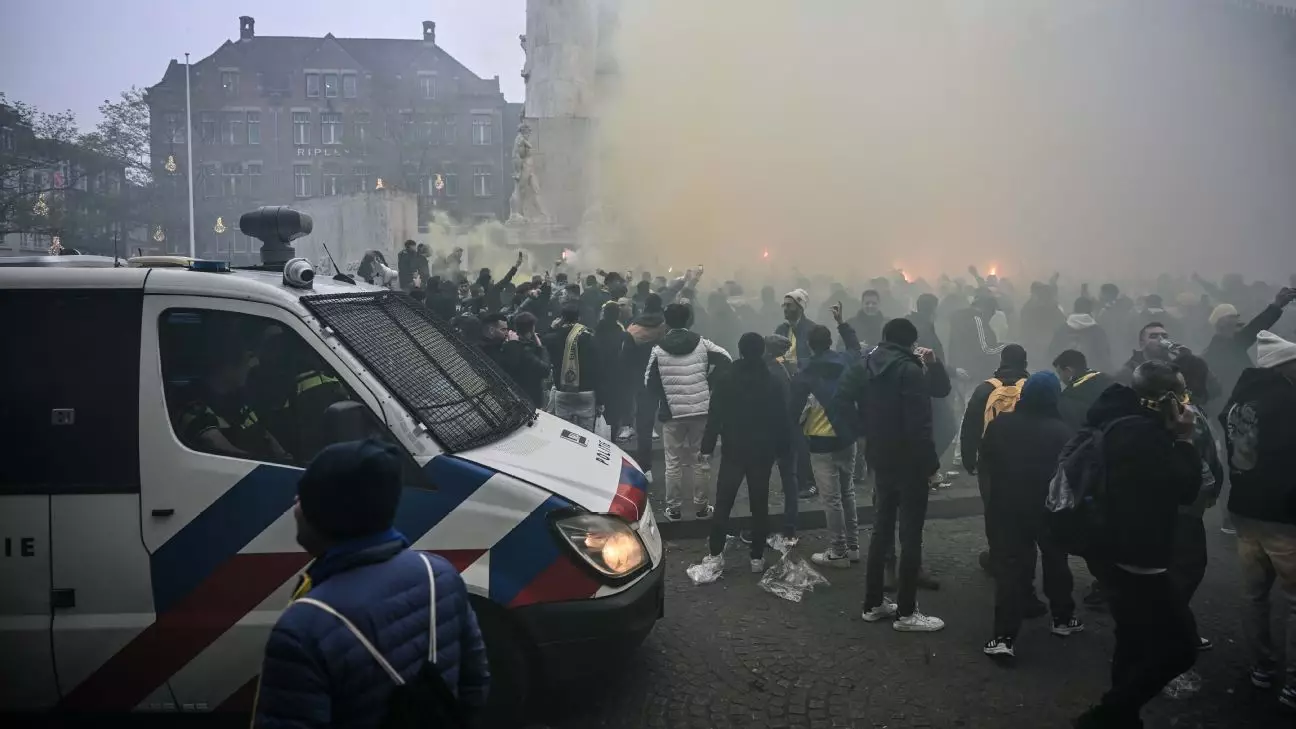As the high-security Nations League soccer match between France and Israel looms, the anticipation is overshadowed by a significant decline in expected attendance. Defender Dayot Upamecano expressed understanding toward those who might choose to stay away, given the current geopolitical tensions and recent violent incidents involving Israeli fans in Amsterdam. Reports suggest that only 20,000 fans might attend the match at the Stade de France, a stark contrast to the stadium’s 80,000 seating capacity. This situation highlights an alarming cultural and social dynamic that is influencing fan behavior and, consequently, sporting events.
In response to heightened security risks, authorities have implemented stringent measures, deploying a staggering 2,500 police personnel around the stadium and additional forces throughout Paris. This proactive approach aims to ensure a safe environment for attendees, particularly given the backdrop of rising threats against Israeli supporters. However, the overly militarized presence serves as a chilling reminder of the increasing intersection between sports and political tensions. Moreover, a recent survey by French supporters’ group Les Irreductibles Français revealed that a significant portion of fans—15%—plan to boycott the match due to the ongoing Israel-Gaza conflict.
The psychological ramifications of such conflicts cannot be understated. Many fans cite security concerns as a primary reason for their absence, reflecting the broader social anxiety surrounding events that should otherwise promote camaraderie and unity. The psychological impact of this atmosphere is compelling. As some refuse to partake due to fears of violence, the essence of sport as a unifying force is challenged. For others, practical considerations, such as availability, also play a role, but the dominant narrative remains one of apprehension.
The headaches associated with this match extend beyond mere attendance; they signify an intricate web of political implications. Calls from Israeli authorities urging their citizens to avoid international events raise questions about nationalism and identity in a globalized world. This geopolitical awareness permeates through fan communities and influences decisions on whether to attend or participate in sporting events, turning them into stages for larger societal debates.
Amidst the turmoil, Upamecano emphasized his passion for the game, expressing a desire for peace and camaraderie through football. The match, significant on many levels, serves as more than a sporting event; it embodies a hopeful aspiration for resolution and healing within communities divided by conflict. The future of sporting events may hinge not only on athletic performance but also on the ability to navigate and reconcile these complex sociopolitical landscapes. Whether or not football can reclaim its role as a unifier in challenging times remains an ongoing question as the world watches and waits.

